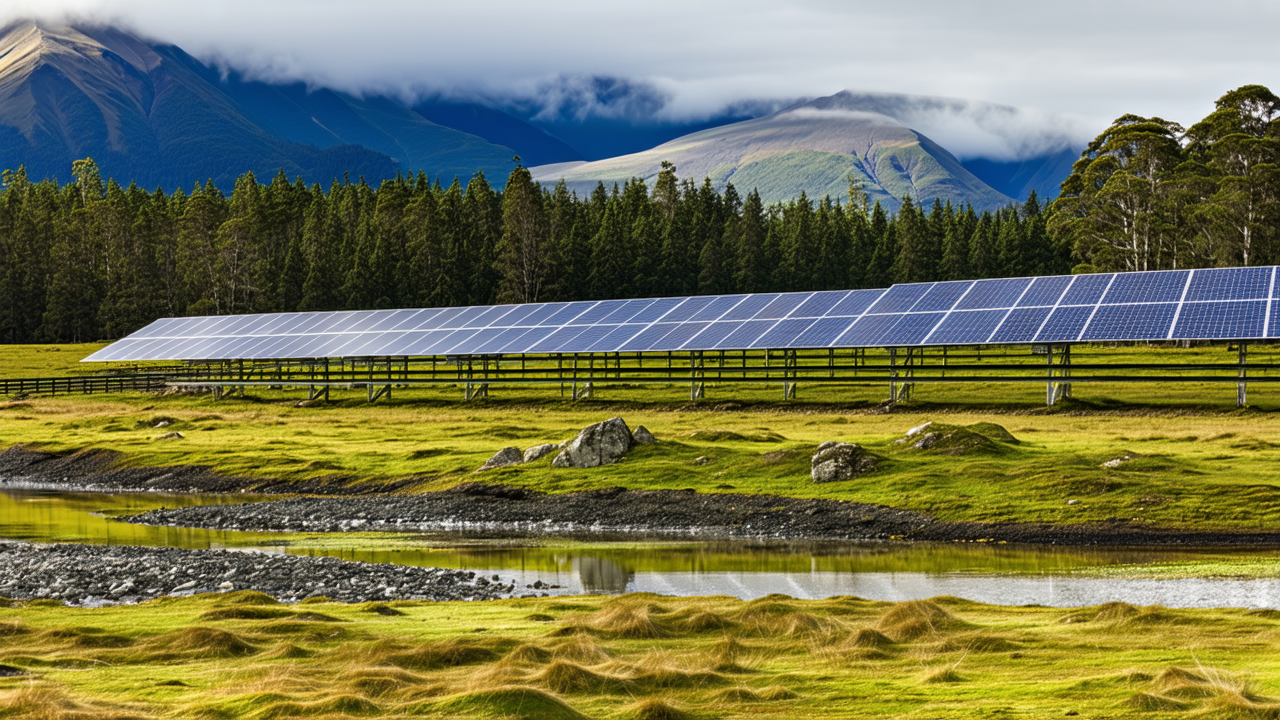New Zealand at 'Significant Risk' of Missing 2050 Climate Target, Government Actions Compounding the Problem
New Zealand at 'Significant Risk' of Missing 2050 Climate Target, Government Actions Compounding the Problem
New Zealand is now facing a significant risk of missing its ambitious 2050 climate target, with recent government actions potentially making the situation worse, according to a report by the independent Climate Change Commission.
The commission's 2025 emissions reduction monitoring report acknowledges that the country has made steady progress in reducing climate pollution over the past few years. However, the report warns that this progress may not be enough to ensure long-term success, and that the government's current plans fall short of what is needed to meet future targets.
One of the key findings is that the risks of missing emissions targets from 2026 onwards have increased significantly in the past year. This includes concerns around the uncertain future of carbon capture and storage (CCS) in the gas sector, which is seen as a crucial part of the nation's climate strategy.
Jo Hendy, CEO of the Climate Change Commission, emphasized that while the country is on track to meet its first emissions budget (covering 2022–2025), the challenge ahead is far from over. “The risk of veering off course after this year has increased,” she said. “The next steps are crucial for delivery.”
Real emissions, which exclude the carbon absorbed by forests, have been on a downward trend since 2019, with 2023 marking the lowest level of emissions since 1999. However, recent data shows that electricity generation emissions rose in 2023 due to increased fossil fuel use, particularly when hydroelectric lake levels were low.
Despite this, Hendy noted that the country is seeing progress in renewable energy, electrification, and process heat conversions. “The key now is to build on that momentum,” she said. “Without specific next steps, the current policy settings won’t be enough to deliver the emissions reductions we’ve committed to.”
The report calls for a number of urgent actions, including strengthening the Emissions Trading Scheme (ETS) and implementing policies to accelerate the shift to renewable energy, cleaner transport, and low-emission farming. It also highlights the need to reassess generous free carbon credits given to large emitters and find alternative ways to protect manufacturing jobs from carbon pricing.
Meanwhile, the commission has warned that certain government actions over the last year could increase carbon emissions. These include introducing road user charges for electric vehicles, reopening offshore oil and gas exploration, and winding down the New Zealand Green Investment Finance fund.
On the positive side, the report acknowledges some encouraging developments, such as government plans to update ETS settings, confirm rail capability for new Cook Strait ferries, and streamline approvals for renewable electricity generation.
The commission also highlighted the advancement of technologies aimed at reducing methane emissions in agriculture, with some solutions now close to commercialization.
In its final recommendation, the commission urged the government to reconsider the current carbon budgets, which, due to changes in carbon accounting, may require less real emissions reduction than initially planned. However, if the government chooses to bring the budgets back in line with original intentions, additional emissions reductions of 15 million tonnes and 18 million tonnes would be required for the second and third emissions budgets, respectively.
With the third emissions reduction plan not due until 2029, the commission stressed that urgent action is needed now to avoid falling further off track. “Without further action, the risks for meeting the 2050 target will only increase,” it warned.
Hendy concluded by emphasizing the importance of the coming years for both the environment and the economy. “Falling short doesn’t just mean missing a target—it means higher costs down the track, lost economic opportunities, and more disruption for communities,” she said.
